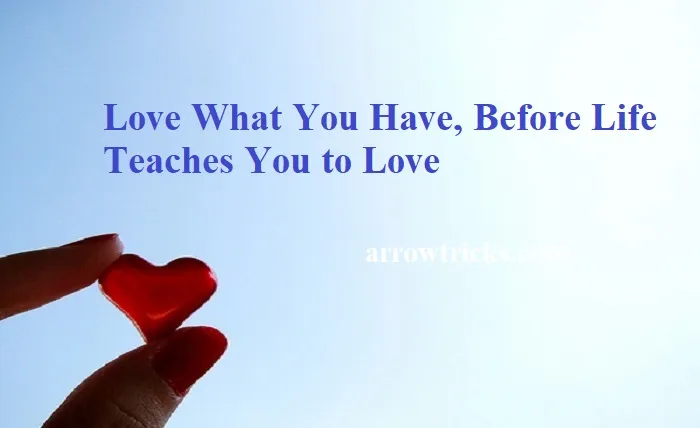Love What You Have, Before Life Teaches You to Love – Tymoff
Introduction
In a world constantly chasing after the next big thing, the phrase “love what you have, before life teaches you to lov – tymoff” resonates deeply, reminding us of the importance of gratitude and contentment. This simple yet profound statement, associated with the platform Tymoff, captures the essence of a life lesson many learn the hard way. In this article, we will explore the multifaceted implications of this sentiment, understanding its relevance in our personal lives, relationships, and how it shapes our perception of happiness and fulfillment.
Embracing Contentment in a Material World
The Lure of Materialism
In contemporary society, materialism has become a dominant force, shaping our desires and perceptions of success and happiness. The pursuit of more – whether it’s the latest technology, trendier clothes, or a bigger house – often seems endless. This relentless chase can lead to a cycle of dissatisfaction, where the joy of acquiring new possessions is fleeting, and the hunger for more is unending.
The Power of Contentment
Contrary to the never-ending pursuit of material wealth, embracing contentment is about appreciating and valuing what we currently have. It’s a mindset that encourages gratitude over greed, and presence over perpetual longing. Contentment doesn’t mean abandoning ambition or the desire for improvement. Rather, it’s about finding a healthy balance, where we can strive for more without discounting the value of our current blessings.
Impact on Mental Health
The constant pursuit of more can take a toll on our mental health. Studies have shown that materialism is often linked to higher levels of stress, anxiety, and depression. On the other hand, practicing gratitude and contentment has been associated with greater happiness, improved mental health, and overall well-being. By appreciating what we have, we foster a positive mindset that enhances our life satisfaction.

